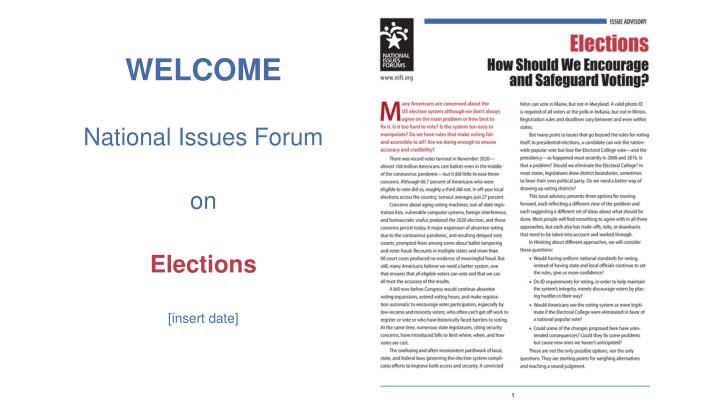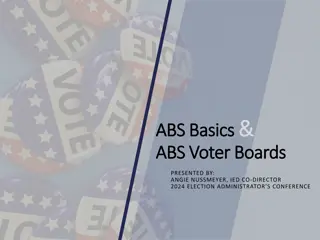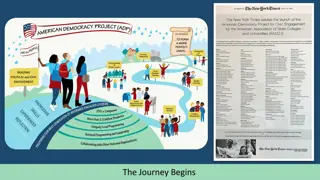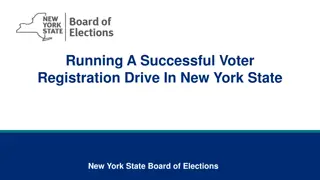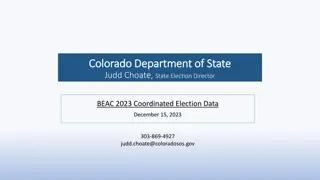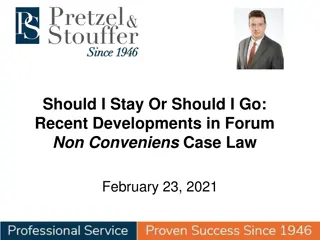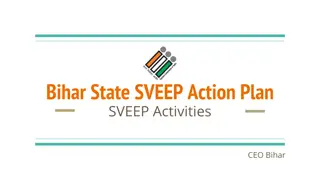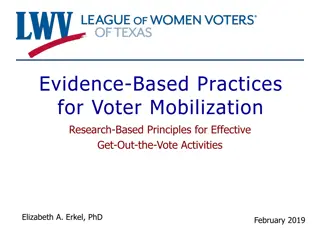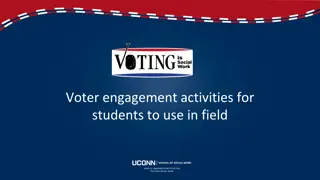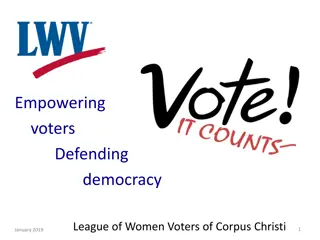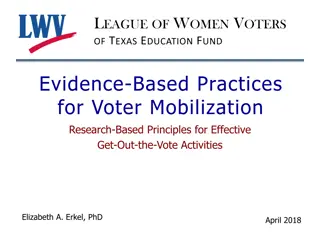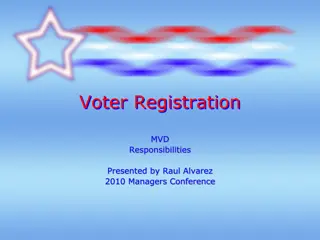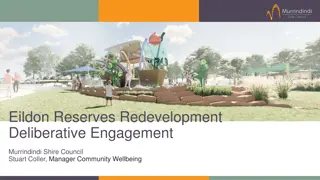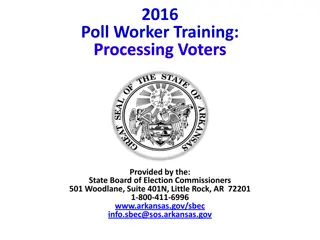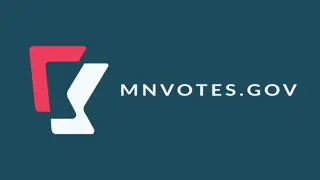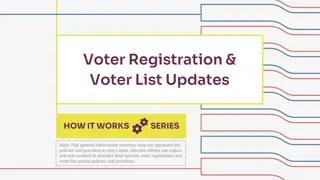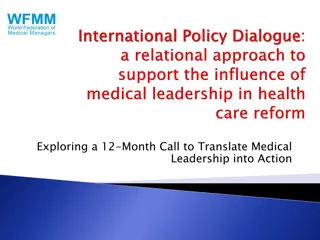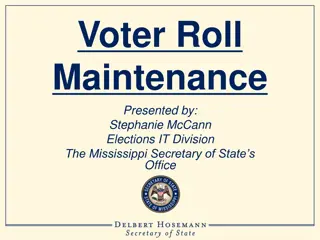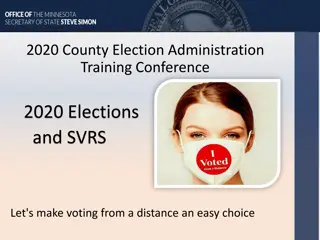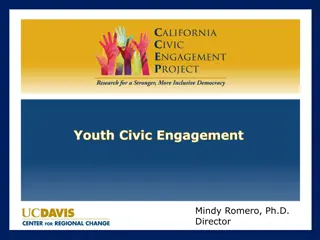Deliberative Forum on Improving Voter Access and Participation
This National Issues Forum on Elections focuses on the theme of improving voter access and participation. The forum discusses the importance of making it easier for all Americans to register and vote, addressing challenges like long lines, limited polling places, and ID requirements. The deliberative process involves considering the benefits and drawbacks of various options, aiming to enhance the democratic process while ensuring integrity and trust in the voting system.
Download Presentation

Please find below an Image/Link to download the presentation.
The content on the website is provided AS IS for your information and personal use only. It may not be sold, licensed, or shared on other websites without obtaining consent from the author.If you encounter any issues during the download, it is possible that the publisher has removed the file from their server.
You are allowed to download the files provided on this website for personal or commercial use, subject to the condition that they are used lawfully. All files are the property of their respective owners.
The content on the website is provided AS IS for your information and personal use only. It may not be sold, licensed, or shared on other websites without obtaining consent from the author.
E N D
Presentation Transcript
WELCOME National Issues Forum on Elections [insert date]
Holding a Deliberative Forum 4. Review and Reflect 3. Consider Each Option 1. Introduction 2. Connect to Issue Review the conversation as a group. What areas of common ground were apparent? What tensions and trade-offs were most difficult? Who else do we need to hear from? Review ground rules. Ask people to describe how the issue affects them, their families, or friends. Consider each option one at a time. Introduce the issue. Allow equal time for each. What is attractive? What about the drawbacks?
Discussion Starter Video Link to video: https://vimeo.com/561864289
Guidelines for a Forum Focus on the options and actions we can take nationally and in our communities. Consider all options fairly. Listening is just as important as speaking. No one or two individuals should dominate. Maintain an open and respectful atmosphere. Everyone is encouraged to participate.
OPTION 1: Make it easier to register and vote. A nurse working a 12-hour shift on Election Day may not get off before the polls close. Voters in neighborhoods with limited polling places endure hours-long lines, with communities of color often hit hardest. Some states require a driver s license or other government- issued photo ID to vote, but many elderly or low-income Americans don t drive and lack access to needed records. This option says that giving every American a chance to vote should be our priority. Voter registration rules and procedures differ from state to state, and in most, it is up to the individual to get registered. A Primary Drawback Some changes that make voting easier may reduce the safeguards that ensure that only eligible voters cast ballots. And a lack of trust in the integrity of the voting system produces division and second-guessing, no matter who wins.
Option 1: Make it easier to register and vote. Actions Offer in-person early voting for 15 days for at least 10 hours a day so people have more chances to vote and long lines and wait times can be eliminated. Possible Drawbacks Keeping polling places open and staffed will be a huge investment for local governments or would require new federal funding at a time of massive deficits. This will hurt small businesses by forcing them to either close on Election Day or pay their workers more to stay open. And it wouldn t help essential workers such as nurses and firefighters. Make Election Day a national holiday as other countries do. Automatically register all those eligible to vote whenever they get a driver s license or visit designated government offices. Automatically adding people to a public database is intrusive and violates their privacy. And there is no assurance it will improve voter turnout since it does not mean those who are registered will vote. Allow people who have completed prison sentences to vote. They have paid their debt to society. People convicted of serious crimes have forfeited their right to vote. What s the trade-off if we do that?? What else could we do, especially on a community level?
Make it easier to register and vote. Automatic registration makes the process easier, but couldn t it also increase the chances of accidentally including ineligible people? What should we do to make sure voting roles are accurate? 1 OPTION 1 Questions for deliberation Suggestions to make voting easier extended poll hours, mail-in ballots, etc. are often quite costly. With government budgets strained at all levels, what would you be willing to cut to pay for these changes? 2
OPTION 2: Do more to make elections secure. The Constitution allows each state to control its own election procedures, which adds to the challenge of securing elections, especially in an environment where foreign governments are actively trying to interfere. There are few uniform standards. For example, five states conduct their voting almost entirely by mail, while others sharply restrict it. This option says that making elections more secure should be our priority. In eight states, there is no paper record of ballots casts. Methods for checking registration databases to clean the rolls of voters who have moved or died vary widely among states. A Primary Drawback Steps intended to fight fraud often end up discouraging legitimate voters, especially low-income and minority voters.
Option 2: Do more to make elections secure. Actions Require photo ID for all federal, state, and local elections. This will be much more reliable than just matching signatures. Possible Drawbacks Making voter ID a requirement will deprive millions of the basic right to vote, especially older Americans and those who do not drive. People should be able to vote absentee for any reason. This requirement would just make it harder for many people to vote. Require voters to apply for and give a valid reason, such as travel or illness, for absentee voting. Use only voting machines that scan voter-prepared paper ballots, and mandate that all election boards keep a paper trail. Paper-based voting systems are slow and inefficient. Some election outcomes will not be known for days or weeks after the ballots have been cast. Remove voters from registration rolls if they haven t voted recently. Americans have the right to sit out elections where the issues or the candidates don t interest them. This just discourages people when they do want to vote. What else? What could we do, especially as a community? What s the trade-off if we do that?
Do more to make elections secure. People show IDs to get on planes and rent cars, and there are alternative IDs for people who don t drive. Wouldn t this be a straightforward and minimally intrusive requirement for voting. Why or why not? 1 OPTION 2 Questions for deliberation More federal involvement in safeguarding elections would bring expertise and resources to strapped local election boards. But could the federal government use its power to steer outcomes and/or discourage opposing party members from voting? 2
Many people believe that their views are not fully represented by either of the major party s candidates, as shown by the rising number of voters registering as Independents. OPTION 3: Offer more and better choices. Others believe that their vote doesn t matter because they live in districts drawn to favor one party s candidate. Races in these gerrymandered districts are rarely competitive. In presidential elections, the Electoral College makes so-called swing states more important, so candidates tend to ignore voters elsewhere. This option says that changing the system to offer all voters real choices should be our priority. What s more, the Electoral College system means that the votes of rural Americans count more than the votes of those in populous states, so it violates the principle of one person-one vote. A Primary Drawback Having two traditional parties has served the United States well, and drastically redesigning the voting system could have unforeseen consequences.
Option 3: Offer more and better choices. Actions Make sure congressional districts are not slanted in favor of either party by having nonpartisan commissions, rather than politicians, draw the districts fairly. Possible Drawbacks Rural and minority voters will lose power if districts are redrawn without their interests in mind, and even nonpartisan commissions can be manipulated. This means public money will be spent on people with almost no chance of winning, including unqualified fringe candidates who are merely seeking attention. Make it easier to run for office by publicly funding candidates and easing requirements so that voters have more and different candidates to choose from. Encourage candidates to campaign in all states by eliminating the Electoral College and using the popular vote instead. This requires changing the Constitution and gives less populous rural states less say in the outcome, which could result in their needs being ignored. Increase participation in primaries by ending registration by party (as 19 states have done already) so that all voters can participate in either party primary. Political parties have the right to choose their own candidates, and this could lead to some partisan voters switching primaries just to undercut the other party s most promising candidates. What else? What could we do, especially as a community? What s the trade-off if we do that??
Offer more and better choices. What could be the unanticipated consequences of ending the Electoral College and allowing commissions to draw Congressional districts? Are we willing to take these risks? 1 OPTION 3 Questions for deliberation Changing voting laws is always difficult and controversial. Could trying to make these broader, longer-term changes pull attention away from more urgent problems like backing up voting systems and guarding against voter suppression? 2
CLOSING REFLECTIONS On what do we agree? About what do we need to talk more? From whom else should we hear? What else do we need to know? Other questions to consider How do the ideas and options in this guide affect what we do as individuals or as members of a community? How might our actions affect the nation in the future?
Post Forum Questionnaire Now that you ve had a chance to participate in a forum on this issue, we d like to know what you re thinking. Anonymous responses will be included in summary reports on the forums and in research to help us better understand how people are thinking about current issues. You may fill out this questionnaire online. https://www.surveymonkey.com/r/electio ns-nifi THANK YOU!
